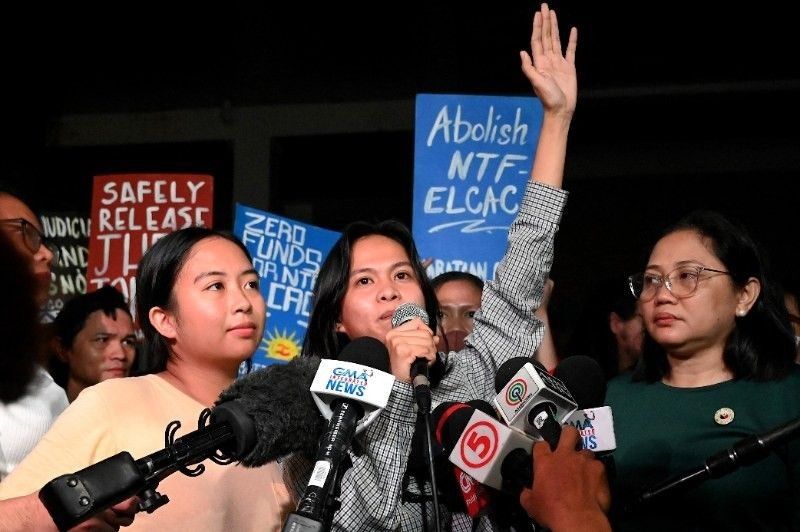SC grants protection writs for abducted environmental activists

MANILA, Philippines — The Supreme Court (SC) has granted writs of amparo and habeas data as well as temporary protection order to environmental defenders Jonila Castro and Jhed Tamano, who accused the military of abducting them in Bataan last year.
In a decision penned by Associate Justice Ramon Paul Hernando and released Thursday, the SC said that “there was an established violation to the life, liberty, or security of petitioners.”
The high court found that elements of enforced disappearance were present in the case of Castro and Tamano. The anti-reclamation activists and community organizers were forcibly taken by armed men in Orion, Bataan on the evening of September 2.
It also found that National Security Council (NSC) Assistant Director General Jonathan Malaya’s statements about exposing information about Castro and Tamano, and accusing them of perjury, constituted threats to their freedoms.
The court noted that statements were “publicly verbalized by government official admitted engaged in the gathering, collecting, and storing of data and information against petitioners.”
A writ of amparo protects individuals whose right to life, liberty, or security is violated or threatened by unlawful acts of public officials, employees or private entities.
A writ of habeas data, on the other hand, protects a person’s right to control information against them that was illegally obtained.
The SC also issued a temporary protection order (TPO) against the responders and all persons “acting and operating under their directions, instructions and orders, prohibiting them from enticing within radius of one kilometer from the persons, places of residence, school, work, or present locations, of petitioners, as well as those of their immediate families.”
Castro and Tamano filed a petition for protection writs in September 2023 against Lt. Col. Ronnel Dela Cruz and members of the Philippine Army’s 70th Infantry Battalion, PCPT. Carlito Buco and members of the Bataan police, Malaya, and the National Task Force to End Local Communist Armed Conflict (NTF-ELCAC).
The high court also directed the Court of Appeals to conduct a summary hearing and decide on the petition and other interim relief sought by Castro and Tamano.
Castro and Tamano were expected to be presented as rebel returnees at a press conference by the military and the NTF-ELCAC on September 19, more than two weeks after their disappearance.
But the pair went off script, accusing the military of abducting them and countering the government’s claim that they voluntarily surrendered to authorities.
Authorities deny involvement in the abduction of Castro and Tamano.
Last month, the Department of Justice (DOJ) dismissed the perjury complaint filed by Dela Cruz against Castro and Tamano.
It, however, recommended the filing of separate grave oral defamation charges against the two, saying they issued inconsistent statements at the press conference and in their signed affidavits.
The activists denounced the move, stressing that the state prosecutors “ignored the fact that we were abducted by the military, taken to a safehouse, and subjected to psychological torture to coerce us into adopting the story concocted by an NTF-ELCAC agent.”
The disappearance of Castro and Tamano highlighted the threats faced by environmental activists in the country.
The Philippines has been consistently listed the deadliest country in Asia for land and environmental defenders, based on the monitoring of watchdog Global Witness. In 2022, 19 environmentalists were killed in the country.
- Latest
- Trending






























